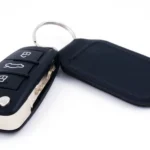
Dacia Duster Horn Relay and Fuse Guide (2015 Model)

When your Dacia Duster’s horn stops working, the problem often lies in the electrical system — specifically, the horn relay, fuse, or wiring circuit. In this comprehensive guide, we break down everything you need to know about diagnosing, testing, and fixing horn-related issues in the 2015 Dacia Duster.
🔧 Horn System Overview
The horn system in the 2015 Dacia Duster consists of the following components:
- Horn relay (R1)
- Horn fuse
- Horn switch (in steering wheel)
- Wiring harness and ground connections
- The horn unit itself
These parts work together to ensure an immediate horn response when you press the steering wheel button.
📍 Fuse and Relay Locations
Main Fuse Box
The main fuse and relay box is located under the bonnet (engine compartment) on the driver’s side. Inside, you’ll find several fuses and relays, including the R1 horn relay.
| Component | Type | Label | Function |
|---|---|---|---|
| Relay | R1 | Horn Relay | Activates the horn when switch is pressed |
| Fuse | F11 (typical) | 15A | Protects the horn circuit from short circuits |
⚠️ There are around 36 additional fuses in the panel, responsible for other systems like lighting, fuel pump, and sensors.
⚡ Why the Horn Relay Fails
1. Short Circuit
A short circuit in the horn wiring can cause excessive current flow, overheating, and relay failure. This often occurs if a damaged wire touches the vehicle’s body or another metal part.
You may be interested in reading Dacia Sandero Key Fob Not Working: Causes, Fixes, and Expert Solutions
Dacia Sandero Key Fob Not Working: Causes, Fixes, and Expert Solutions2. Component Wear
Over time, the electromagnetic coil or internal contacts inside the relay can degrade due to frequent use. This mechanical wear leads to poor conductivity or complete failure.
3. Voltage Spikes
Sudden electrical surges or unstable alternator output can burn the relay’s contacts. If your Duster has experienced electrical instability (e.g., dim lights, flickering dashboard), this could be a related symptom.
🧰 How to Test the Horn Relay
Follow these steps to verify if your relay is faulty:
- Locate the horn relay (R1) in the engine bay fuse box.
- Swap the relay with another identical relay (e.g., for fog lights) if available.
- If the horn works after swapping, the original relay is defective.
- Alternatively, use a multimeter to check:
- Coil resistance: should be between 50–120 ohms.
- Continuity test: ensure current flows when the relay is energized.
✅ Always replace the relay with one that matches the original specifications.
🧩 Other Possible Causes of Horn Failure
If the relay is working correctly, inspect these common culprits:
1. Blown Fuse
A blown fuse is one of the simplest causes of a non-working horn. Replace it with a same-rated fuse (usually 15A). Never use a higher rating, as this can damage the circuit.
You may be interested in reading Dacia Sandero Key Fob Not Working: Causes, Fixes, and Expert Solutions
Dacia Sandero Key Fob Not Working: Causes, Fixes, and Expert Solutions Dacia Sandero Not Starting: Causes, Diagnosis, and Solutions
Dacia Sandero Not Starting: Causes, Diagnosis, and Solutions2. Wiring Damage
The wiring between the horn button, relay, and horn unit can degrade over time. Look for:
- Frayed or exposed wires
- Corrosion at connectors
- Loose terminals inside the fuse box
The clock spring behind the steering wheel is a common weak point — movement over time can cause wire breaks inside it.
3. Faulty Horn Unit
If all electrical components work but the horn remains silent, the horn itself may be faulty. Remove it and apply 12V directly to the terminals.
- If it doesn’t sound, replace it.
- If it does, the issue lies in the relay or wiring.
4. Bad Ground Connection
Both the horn and relay rely on a clean, solid ground. A corroded or loose ground connection will interrupt the circuit. Clean all grounding points with contact cleaner or sandpaper.
🔍 Preventing Future Horn Issues
To ensure long-term reliability:
- Avoid excessive use of the horn during long presses.
- Regularly inspect wiring insulation near the steering column and front bumper.
- Clean and protect electrical connectors with dielectric grease.
- Ensure your battery voltage and alternator output are stable (12.6V–14.4V).
⚙️ Quick Recap
| Symptom | Likely Cause | Solution |
|---|---|---|
| Horn silent, fuse OK | Faulty relay | Replace R1 relay |
| Relay clicks but no horn | Broken wire or bad horn | Inspect circuit and horn |
| No relay click | Faulty horn switch or clock spring | Replace switch assembly |
| Horn intermittent | Poor grounding | Clean and tighten ground points |
🧠 Expert Tip
If your horn intermittently fails and returns after steering movement, the clock spring (steering wheel wiring coil) is the likely culprit. It’s a common and often overlooked issue in Dacia and Renault models.
You may be interested in reading Dacia Sandero Key Fob Not Working: Causes, Fixes, and Expert Solutions
Dacia Sandero Key Fob Not Working: Causes, Fixes, and Expert Solutions Dacia Sandero Not Starting: Causes, Diagnosis, and Solutions
Dacia Sandero Not Starting: Causes, Diagnosis, and Solutions Dacia Sandero Windscreen Washer Not Working: Complete Fix Guide
Dacia Sandero Windscreen Washer Not Working: Complete Fix GuideIf you want to know other articles similar to Dacia Duster Horn Relay and Fuse Guide (2015 Model) you can visit the category Common Problems.
Leave a Reply






More content of your interest